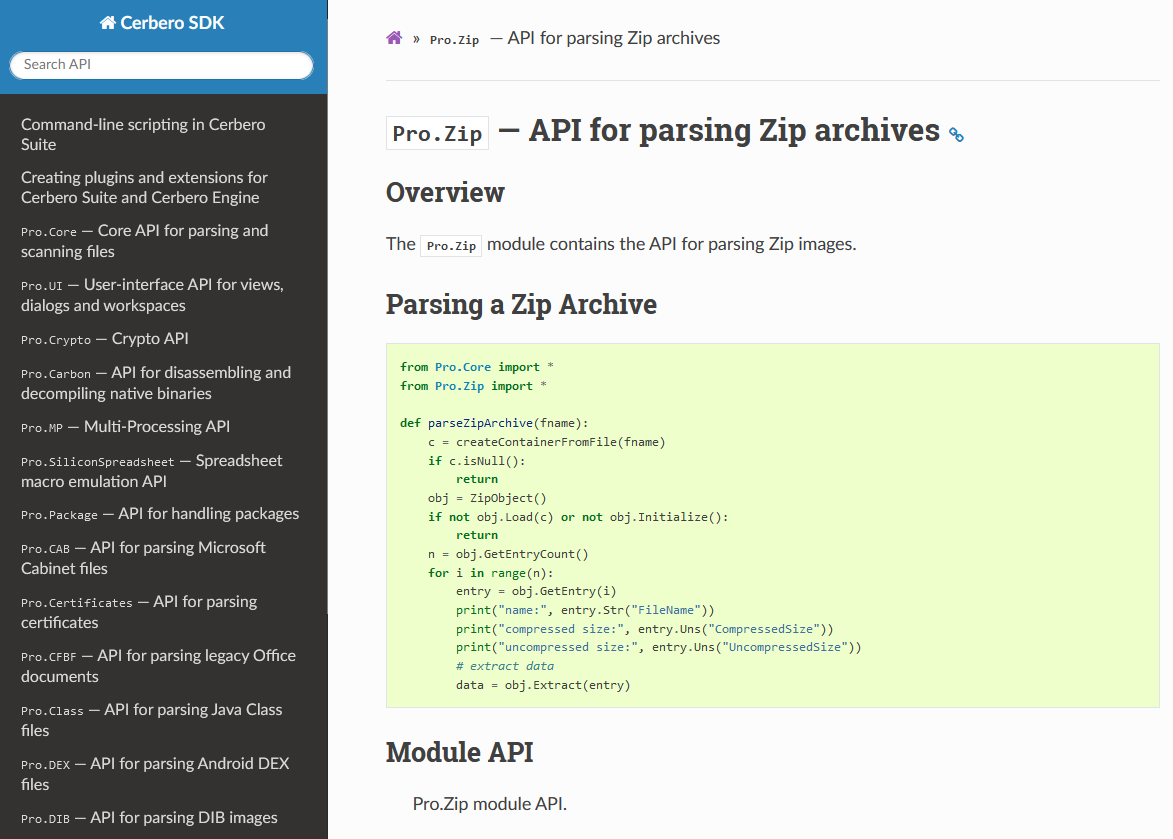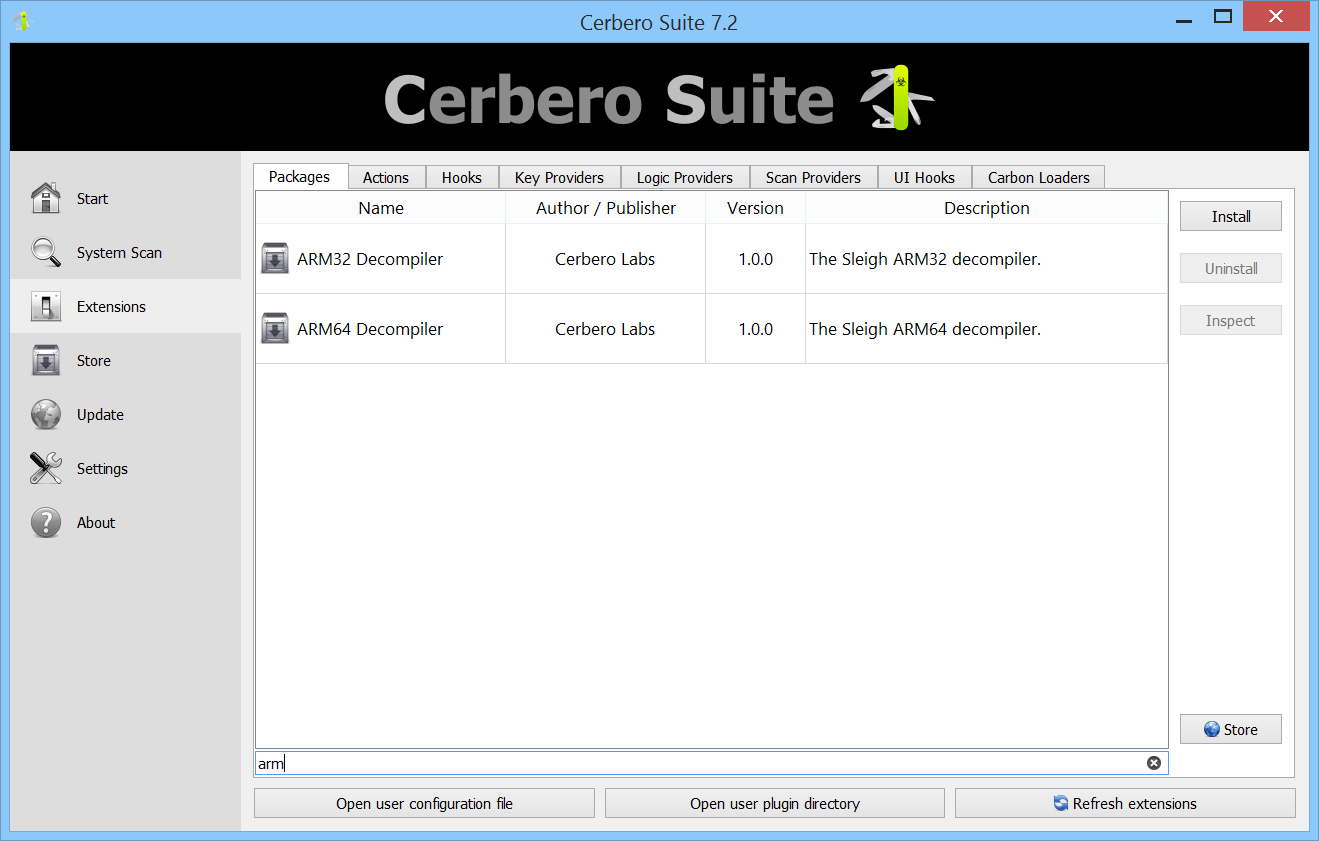We have released Cerbero Suite 7.2 and Cerbero Engine 4.2. This release introduces numerous minor improvements and bug fixes. In this post, we’ll detail the most significant additions.
Unified Initialization Method
All file format objects now expose a common initialization method: CFFObject.Initialize. This simplifies the parsing of different file formats as it eliminates the need to look up individual parsing methods they expose. The method also accepts a parameters structure.
zstd Filter and ZST format
We have added the ‘unpack/zstd’ filter and support for the ZST file format.
Zstandard (ZSTD) is a lossless compression algorithm that offers a compromise between compression speed and the size of the compressed data. It employs techniques such as entropy coding and dictionary compression. ZSTD is adaptable, allowing users to prioritize either speed or compression ratio depending on their requirements. It’s commonly used for compressing and decompressing data in various computing environments.
The ZST file format is associated with compressed files created using the Zstandard (ZSTD) compression algorithm. It’s essentially a container for data that has been compressed to reduce size without losing any original content. The “.zst” file extension indicates that the file has been compressed with Zstandard and needs to be decompressed with a tool that supports ZSTD to return the data to its original state.
AES CTR and OFB
AES CTR and OFB modes are now available both through filters and through the Crypto module.
This enhancement speeds up Python plugins that utilize these AES modes.
Zip Module Documentation
We have documented the built-in Zip module.

Zip archives are ubiquitous and form the foundation of numerous file formats, making them an essential and widely-used file format.
Scripts & Packages Filter
The load script dialog now includes a filter, simplifying the process of quickly accessing the desired script.

Similarly, the list of installed packages now features a filter, making it much easier to locate specific installed packages.

Furthermore, we have made the filter control available in the SDK, allowing you to incorporate it into your own user interfaces.